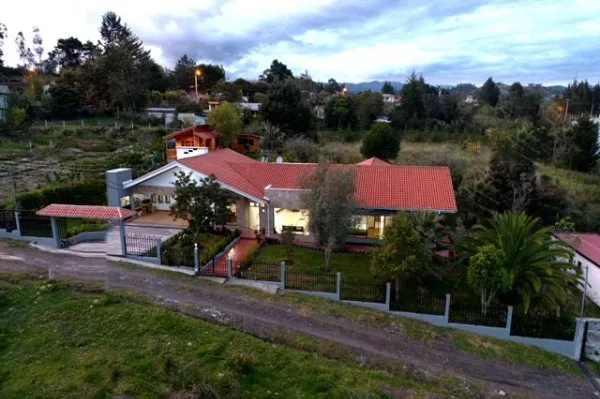Ecuador aggressively pursues a digital, knowledge-based economy; Cuenca could be a leader in the new effort
By Nate Singham
When Ecuadorian President Rafael Correa visited the United States in April, meeting with faculty and students from universities including Harvard, Yale and the Massachusetts Institute of Technology, he and René Ramírez, Ecuador’s minister of higher education, said that one of the goals of the trip was to strengthen institutional ties between U.S. and Ecuadorian universities.
Since becoming president, Rafael Correa has made higher education (particularly in the field of technology) a key aspect of domestic policy. In 2013, 1.83 percent of public spending as a percentage of total GDP went toward higher education, one of the highest in all of South America.

Ecuador says it would like to become less dependent on natural resources, such as for oil, as a source of economic growth. Instead, it seeks to create a digital- and knowledge- based economy.
The Information Communication Technology (ICT) sector has become an increasingly important source of growth for many Latin American countries. A report published by the Economic Commission for Latin American and the Caribbean (ECLAC) discovered that between 1995-2008, there was a positive correlation between ICT capital, economic growth and productivity. During those years, ICT capital made up 14 percent of GDP growth in Brazil, 7 percent in Chile and Mexico, and 5 percent in Argentina.
Currently, Ecuador is one of 15 Latin American countries actively promoting a digital agenda as part of a larger domestic policy. One of Ecuador’s key policy goals is to increase the domestic ICT labor force by making technological knowledge and innovation available to marginalized segments of the population. Since 2008, the government has established 473 “infocentros,” public spaces that provide computer training and internet access to rural communities. The training program is based on a global computer literacy curriculum, which is being used by the Ecuadorian government to bridge the digital divide. (It is worth noting that similar models have been adopted in Venezuela, Brazil and Bolivia.) As a result of the “infocentro” initiative, the use of the internet among the rural population has increased from 9.1 percent in 2009 to 17 percent in 2012.
The government has also launched a campaign called “Escolar Conectividad” that was established to expand internet coverage in schools throughout the country. From 2008 to 2012, the government provided 4,877 schools with broadband internet connectivity (this is a remarkable accomplishment considering that in 2007, there were only 12 schools in the entire country with access to broadband internet). It is also worth pointing out that between 2005 and 2012, Ecuador experienced a 48.7 percent increase of broadband internet users, which was the highest in the entire region. The government attributes this to the adoption of policies that promote public access to technology and the internet.
Private businesses are also helping push digital development and cities in Ecuador, particularly in Quito and Cuenca where a number of international firms are providing programming and data services.
A 2012 study showed that half the systems engineers at the World Bank and the Inter-American Development Bank were from Brazil and Ecuador and that 80% of the Ecuadorians were from Cuenca.
Another important goal in Ecuador’s digital agenda is to achieve digital sovereignty to overcome technological dependence on developed countries. In its effort to achieve this goal, in 2010, the Ecuadorian government passed a higher education reform bill, which requires universities to use open-source software as a way to protect intellectual sovereignty. Previously, Ecuadorian universities used proprietary software, and consequently, much of the ownership of research and intellectual property created by Ecuadorian universities was tied to foreign software companies. The use of open-source software has played an important role in protecting Ecuadorian intellectual property and creating conducive conditions for a knowledge economy. (It is worth noting that the issue of digital sovereignty was a key theme addressed in this year’s NET Mundial conference held in Brazil).
Finally, late in March, the government inaugurated Yachay, the country’s first planned city of nearly 17 square miles designed to become a hub for technological research and scientific infrastructure. Located inside the city is Yachay University, which is now Ecuador’s first research technology institute. The university will offer degrees in the following areas: life sciences, information and communications technology, nanoscience, renewable energy and petro chemistry. The university hopes to attract professionals and researchers, both foreign and domestic, to ensure technological innovation.
Some sectors of the government view science, technology and education as an important part of its plan to promote sumak kawsay. (Sumak kawsay is a Quechua linguistic term referring to a way of life that includes communal socio-economic systems or “ayllus,” respect for nature and quality of human life. Recently, sumak kawsay has been integrated into government development plans as the foundation for a more sustainable alternative to traditional economic development models.) As a result, the Ecuadorian government is starting to prepare its future and current generations with greater access to technology, information and education as a strategy to generate alternative forms of economic growth.
Photo caption: Operations at a Cuenca computer programming firm.


















